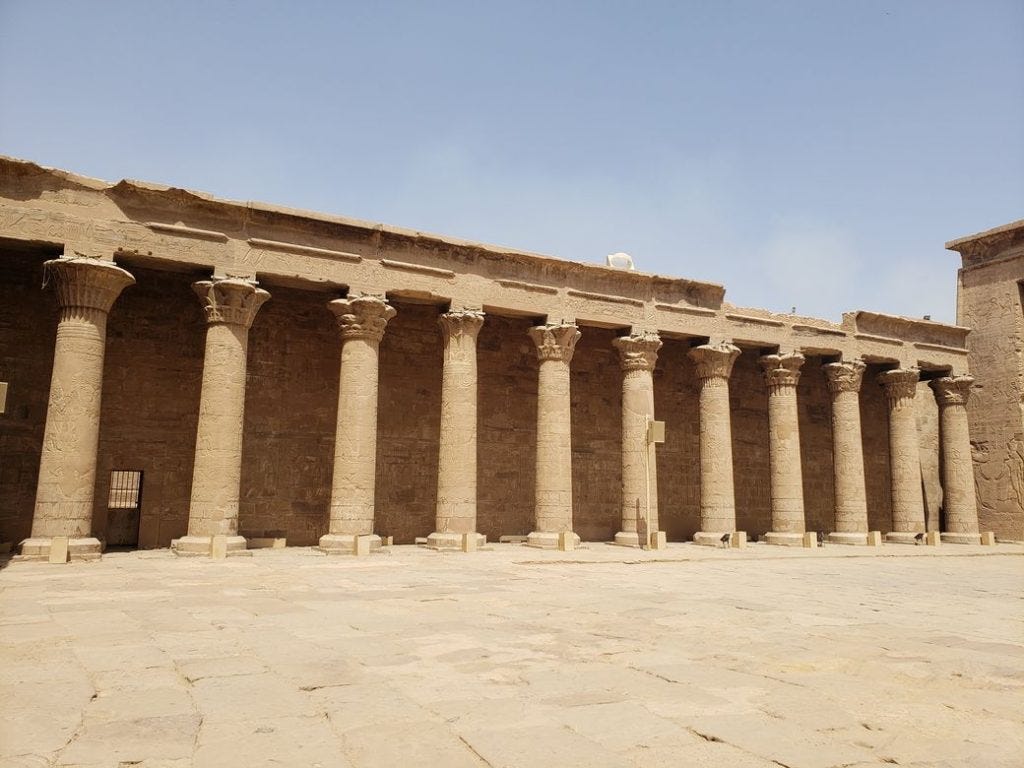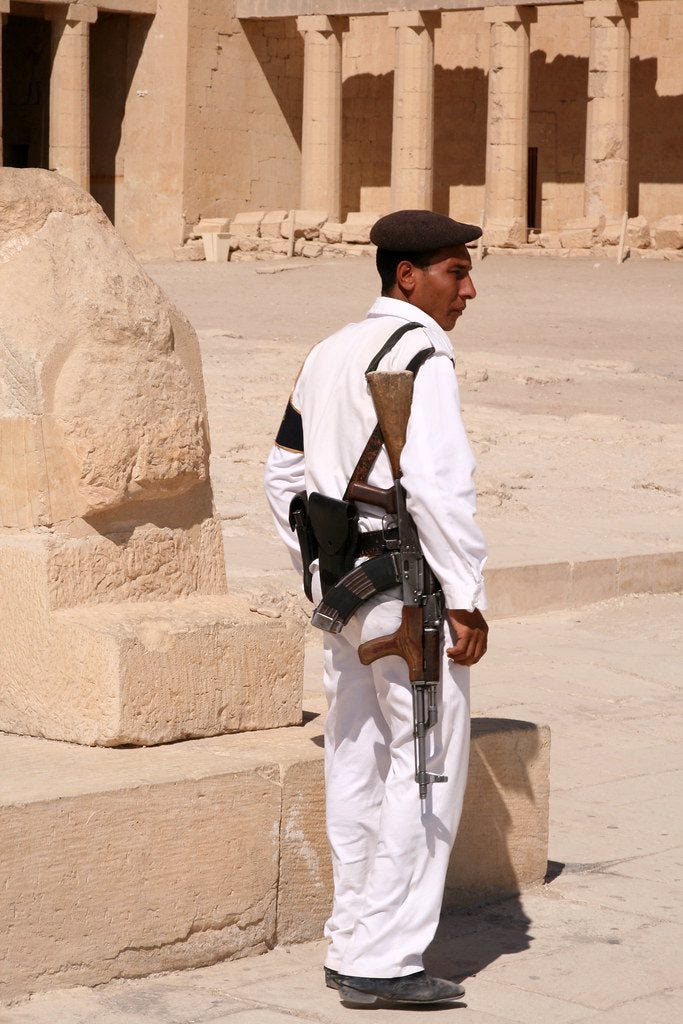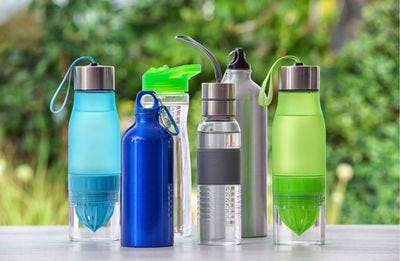
After a friend moved to Cairo in 2020, I had a rekindled desire to see this magnificent country. For as long as I can remember, visiting the pyramids in person was high on a bucket list. As a child, my class went to see the treasures of King Tut at the Royal Ontario Museum. After that, I was fascinated with Egypt. We all learn about the pyramids, the temples, and the tombs of famous kings throughout our schooling, but unfortunately, many will never take the trip for various reasons. I created this list of travel tips based on my visit in April 2022.
If you are ready to take the plunge and plan that first trip to Egypt, here are the top 8 travel tips for Egypt you should know before you go..
1. Lots of Walking and Stairs
As you recall from your education and research, Egypt has been populated for a very long time; almost 5,000 years. Many iconic symbols, tombs, and temples were created from the landscape of limestone and granite. The walkways, stairs, tunnels, and tombs have uneven ground surfaces. Visiting these sacred sites involves traversing over these uneven surfaces and climbing up and down uneven steps. They are hand cut from stone, after all.
If you plan on going inside the pyramids, the tunnel is about 250 feet long, at a forty-five-degree angle, and is only about four feet high. You will crouch both into and out of the tomb, so your back and legs will get an ultimate workout.
In the Valley of the Kings, most of the tombs open to the public require you to enter via flights of steep, uneven stairs with limited railings.
For most tourist sites, accessibility does not go much further than the visitor center. Anyone with mobility issues (wheelchairs, walkers, canes) or just bad knees will have a tough time truly appreciating all that ancient Egypt has to offer. By the way, most Nile cruise ships also have limited accessibility as the boat anchors side by side while in the ports, and you need to walk through several ships to get to the shore.
2. Limited Benches
As mentioned previously, with accessibility issues, one of the top tips you should know is that there are limited benches available for resting. It is one thing to go to Egypt and see the incredible historical sites, but with the heat and plenty of walking, it would be nice to rest occasionally. There are few places to rest at most tourist attractions.
Some benches are available within the building for those attractions with a visitor center. Still, once you venture out into the temple, benches are challenging to find and usually already taken. Depending on the time of day and attraction, they may or may not be in the shade.
The lack of benches may be due to Covid-19 restrictions at the time but more likely because they just do not fit with the historic nature of the monuments.
3. Toilets
It goes without saying that toilets are necessary for everyday life, whether at home or on an exotic, once-in-a-lifetime vacation. For those that have some experience traveling, you know that not all foreign countries will have the same facilities or cleanliness standards that you have at home. You quickly learn that toilets in Egypt (apart from those on cruise ships and hotels) are not particularly clean. In fact, they are filthy! One of the worst was at the train station while waiting for the overnight train from Cairo to Luxor.
Most will have water (or something wet) on the floor, little soap, and a few towels for drying, and some do not have running water. Hand sanitizer is a must. Furthermore, in non-tourist areas, you may find some toilet rooms without the actual toilet. There is a hole in the floor in front of you. Coming from North America, this is an eye-opening experience, to say the least!
Furthermore, entrance to the toilets is by way of tips for toilet paper. A $ 1 USD will suffice, or small denominations of Egyptian Pounds will also work.
It should also be noted that not all attractions have toilets, and depending on your tour itinerary, you may find yourself crossing your legs. For example, when you book a hot air balloon ride in Luxor, the balloon launching site does not have toilets. Make sure to go before your leave your hotel or cruise boat and do not have a coffee before the ride.
4. Egypt Is Very Hot
Unless you plan your trip to Egypt from December to March, you will discover that Egypt is very HOT! In April, the daytime temperature ranges from 35-42 degrees C, with nighttime only falling to 30C. If you recall, Egypt is also in the desert, so when the sun shines (almost always), the sun is reflected on the light-colored sand adding to the increased temperatures. In the summer months, the heat is almost unbearable.
Planning your wardrobe around these temperatures is key to your enjoyment. Lightweight clothing and a hat are a must. Don’t forget to lather sunscreen on exposed skin.
5. Visible Police and Security
You will notice an increased police presence when you arrive in Cairo. I am not talking about a few extra security guards at the airport. I’m talking about multiple well-armed police at almost every entrance and exit door to the airport terminal and on the platform. As you arrive at your hotel, more police. Be aware that visible police presence is a normal occurrence in Egypt so do not be afraid.
You will also notice that there is a very high police presence at every ancient historic site, and most sites will have a security bag check and an x-ray machine. Some places will have x-ray scanning more than once as you pass through the entrance.
After an uprising a little over a decade ago that killed approximately 60 tourists, Egypt places the highest priority on tourist security. Since then, Egypt has created a special Tourist Police to monitor and control all tourist-related attractions to prevent any similar tragedy.
As a result, most historic sites have a noticeable police presence with large firearms at the ready. If you take a bus tour from Aswan to Abu Simbel, your tour bus will likely be escorted by an armed guard on the bus to protect the tourists should there be any difficulty. If you visit the Aswan High Dam, security is provided by the Egyptian Army, and they do have weapons drawn towards the road over the dam. Also, you cannot visit inside the dam and can only view it from the road.
If you are taking the overnight train from Cairo to Luxor or Aswan, your group will have a police escort through the public train platform to a protected holding area while you wait for the train. As mentioned, tourist security is significantly valued in Egypt but can be somewhat disconcerting when you see this level of security for the first time.
6. Driving in Egypt
When many people plan a vacation, they consider renting a car to get around to the different sites to see. In Egypt I would strongly recommend against driving in this country! First, many signs are in Arabic and are challenging to figure out. More importantly, however, is that driving is a bit of a game of roulette. Yes, there are lines on the roads, but no one stays within them.
Furthermore, all types of vehicles, from trucks and cars down to bikes and donkey carts, all share the same roads. In more congested areas, it is gridlocking almost all the time, and the horns are beeping incessantly! Even locals peddle some goods in the center median of the highways.
And then there is insurance. Unlike in North America or Europe, car insurance is not a thing in Egypt. If you were to rent a car that got damaged, stone chip, broken mirror, dent, etc., you would be on the hook for whatever fee the agency charged you to repair the damage. You will like to be required to pay a deposit of up to $5,000 before they permit you to rent. Bottom line, book a tour or call an Uber.
7. Garbage
Once you leave your hotel and start touring around the city, Cairo, Luxor, or otherwise, you will notice the never-ending mounds of garbage that have accumulated in the streets. Yes, you will see locals with brooms sweeping, but the sheer amount of waste lying around is mind-boggling! Much of the trash is water bottles or other plastic containers, but general trash is everywhere.
Tourist sites are generally cleaner, or perhaps tourists are more careful about where they place their garbage.
8. Water
Being in a desert country, drinking water is essential for hydration. One of the travel tips you should know is that NOT, under any circumstances, do you drink the tap water in Egypt! Furthermore, be cautious about using it for brushing teeth or rinsing any food product. If you are not used to the local water, it can contain microbes or bacteria that can cause sickness. Diarrhea is not your friend when you are on vacation. (Or at any other time for that matter) Also, be careful with the product as it could have been washed with local water. Ice in drinks also falls into this category.
Your best bet is to purchase bottled water which is inexpensive and easy to find. It is a common local scam to refill water bottles with tap water. Make sure your bottle is still sealed. Alternatively, you can refill your own water bottle from a trusted source at your hotel or bring one with a filter inside to remove impurities.
Final Thoughts –
Traveling to Egypt is an incredible experience. Knowing top travel tips before you go can help make your experience more enjoyable.
So, take the plunge, put your fears aside and book that bucket-list trip you have always wanted to take. Once you know some tips, you will be more at ease.
For additional information and travel tips about Egypt, see the FAQ section Egypt Travel Guide – How To Plan Your First Trip To Egypt
ARE YOU READY TO VISIT THIS AMAZING BUCKET-LIST DESTINATION?








